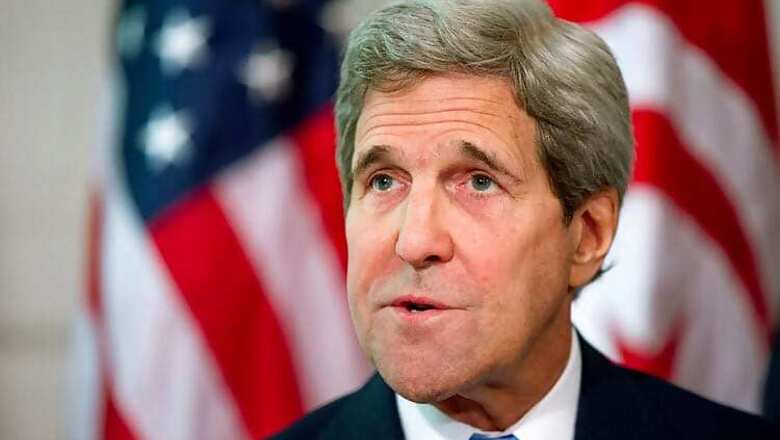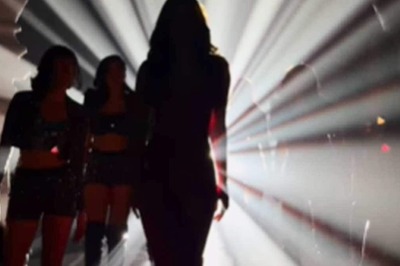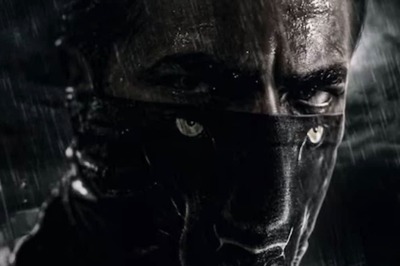
views
Washington: Religion-based societal violence in India was the "most significant" human rights problem in the country in 2014, besides "widespread corruption" and abuses by police and security force, according to a US State Department report.
In its annual Congressionally-mandated 'Country Reports on Human Rights Practices for 2014', the lengthy India section mentions a number of issues, including arbitrary arrest and detention, disappearances, hazardous prison conditions, and lengthy pretrial detention.
All this, before the report goes on to note that the "judiciary remained backlogged, leading to lengthy delays and the denial of due process" on 2014.
"The most significant human rights problems were police and security force abuses, including extrajudicial killings, torture, and rape; widespread corruption that contributed to ineffective responses to crime, including those against women and members of scheduled castes or tribes; and societal violence based on gender, religious affiliation, and caste or tribe," it said.
The report, released by US Secretary of State John Kerry on Thursday, cites another report submitted to the government by three senior police officials from Maharashtra, UP, Tamil Nadu, and an IB representative entitled 'Strategy for Making Police Forces More Sensitive Towards Minority Sections'.
"This report acknowledged bias within the police force against Muslims and reported the Muslim perception of police as 'communal, biased, and insensitive'," it said.
Between May and July, in Bastar district of Chhattisgarh, approximately 50 village councils passed resolutions banning non-Hindu religious "propaganda", prayers, and speeches in their villages, the report said.
Social media posts triggered communal violence in Pune, Maharashtra, beginning on May 30, with multiple arson attacks on Muslim-owned shops and mosques and an assault against a Muslim cleric, it added.
On June 2, a group beat to death Mohsin Shaikh, who was returning from prayers in Pune. The attackers allegedly targeted him for his "Muslim appearance". Police arrested members of the Hindu Rashtra Samiti in connection with the violence and pressed murder charges against its chief, Dhananjay Desai, the report noted.
It further noted "there were reports that the government and its agents committed arbitrary or unlawful killings, including extrajudicial killings of suspected criminals and insurgents, especially in areas of conflict such as Jammu and Kashmir, the northeastern states, and the Maoist belt".
Most 'encounter killings' occurred in conflict areas, but such incidents reportedly occurred elsewhere in the country as well, the report said.
It said the government made "some progress" in attempts to hold police and security officials accountable for killings committed during the Gujarat riots in 2002 though civil society activists continued to express concern about the Gujarat government's failure to hold accountable the culprits.
The communal violence resulted in the deaths of more than 1,200 persons, the majority of whom were Muslim. The report said that the law in some states restricts religious conversion, and there were reports of arrests but no reports of convictions under those laws. Also, some limits on the freedom of movement continued.
Also, leading up to the 2014 general election – described by Kerry in the preface of the report as "one of the largest elections in history", there were several instances in which individuals faced arrest for allegedly posting political comments on Facebook.
It noted a complaint filed against Goa-based Devu Chodankar, who urged community members not to vote for Narendra Modi as prime minister in a controversial post on Facebook following which he was detained and interrogated.
Talking about corruption, the report said that "a lack of accountability for misconduct at all levels of government persisted".
"Investigations and prosecutions of individual cases took place, but lax enforcement, a shortage of trained police officers, and an overburdened and underresourced court system contributed to infrequent convictions," it said.
Rape, domestic violence, dowry-related deaths, honour killings, sexual harassment, and discrimination against women remained serious societal problems, it said. Child abuse and forced and early marriage were problems, the report noted as it also the trafficking in persons, including widespread bonded and forced labor of children and adults, and sex trafficking of children and adults for prostitution as serious problems.




















Comments
0 comment